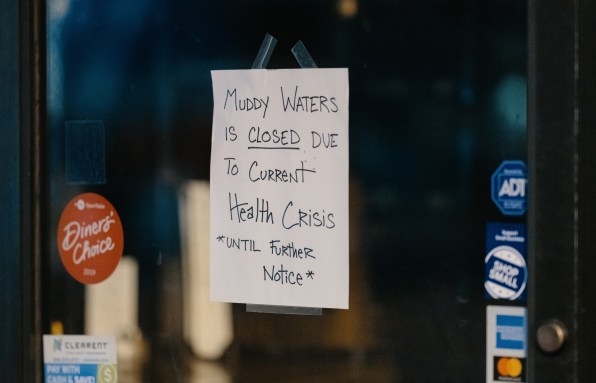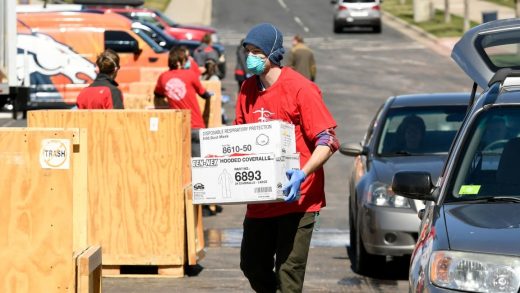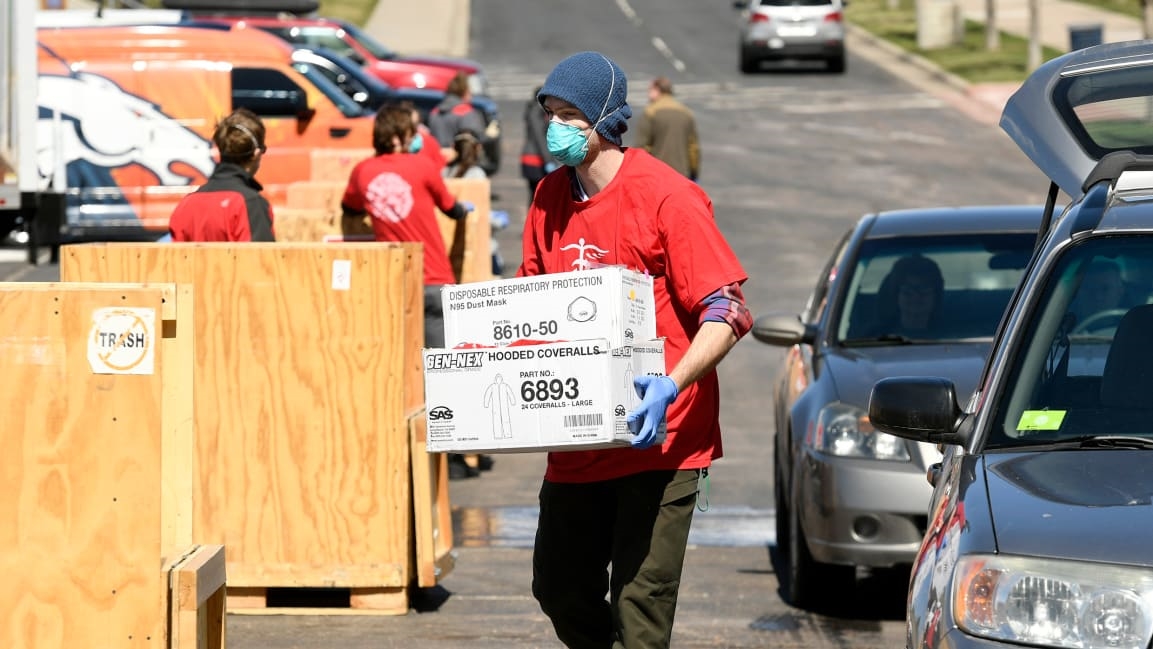To save capitalism from the COVID-19 crisis, we need to act more like socialists
For many of us, the coronavirus has been a terrifying reminder of our own mortality. Just as frightening are the headlines about the coming economic collapse, with some experts predicting 30% unemployment, mass bankruptcies, and a downturn to rival the Great Depression.
But this crisis also presents an opportunity for us to come together, to recognize the importance of collective action, and to belatedly move the United States in a more humane direction. It may sound naïve, but rarely are we asked to reflect on our values as a society and why our social safety net is so important. In a pandemic, we are only as strong as our weakest links. There’s a lesson here, for those willing to hear it.
The path forward begins in our communities. Help mop the floors in your apartment building, sanitize doorknobs and handrails, or volunteer to go grocery shopping for elderly neighbors. Give money to charity and tip generously every service worker you encounter. Support local businesses that are still open by buying gift certificates and keep paying your dog walker or cleaning crew even if you’re not using their services right now. Organize phone calls or videoconferences with old friends and family members you haven’t talked to in years. Individual actions such as these are inspiring, and they will help us to get through this together.
But we also must confront the fact that our economy was sick long before this crisis arrived—and that we have to establish a more egalitarian society if we’re going to survive the next one. The Obama administration made some progress, in the wake of the 2007-2008 financial crisis, but it failed to cure the cancer at the heart of the Great Recession. Instead of making structural changes to the economy or having the guts to challenge the financial elite, Wall Street got bailed out. In the years since, income inequality has only gotten worse.
The coronavirus crisis may be worse than that economic collapse, in part because the pain is beginning from the bottom up, rather than from the top down. “The entirety of the problem surrounds the loss of income for primarily low-wage workers, the risk that a significant share of small-to-medium-size enterprises will fail in the coming weeks, and finally that state and local governments will be unable to finance the response and recovery,” says economist Michael J. Hicks, the director of the Center for Business & Economic Research at Ball State University. “It is really that simple.”

This time, facing an even bigger catastrophe, let’s get it right. Not just because it’s the right thing to do, but because it might be the only way to survive. And that requires a holistic effort that depends on widespread cooperation at the personal and governmental level. Those states that best survive this crisis might be those “where government, civic, and private-sector leaders joined their strengths together in a spirit of self-sacrifice for the common good,” notes Archon Fung, professor of citizenship and self-government at Harvard University’s John F. Kennedy School of Government.
This week’s historic $2 trillion stimulus bill is a step in the right direction, with $250 billion set aside for direct payments to individuals and families, $350 billion in small business loans, $250 billion in unemployment insurance benefits, and $500 billion in loans for distressed companies. But it doesn’t go far enough, with a means-tested one-time monthly payment for Americans that won’t help them make it through the perilous few months to come, and lacks incentives for landlords to freeze rents. What’s needed is a multipronged approach that requires some generosity on the part of all of us, small and large businesses, and local, state, and federal governments:
This crisis represents a chance to reexamine our values and find a way to be true to our best selves. As Jonathan Rauch recently told Politico: “People are finding new ways to connect and support each other in adversity; they are sure to demand major changes in the health-care system and maybe also the government; and they’ll become newly conscious of interdependency and community.”
Some businesses are adopting that approach. On a recent conference call organized by the Main Street Alliance, a national network of small business owners, entrepreneurs shared their concerns about rising debt loads, expressed appreciation for local efforts to support them through gift card purchases, and said they hoped federal low-interest loans would roll out in the coming weeks. One of the participants was Aaron Seyedian, the founder of Well-Paid Maids, a living-wage cleaning company that is paying out a $500 emergency bonus to each furloughed staff member to help cover needs in the short-term and paying for 100% of their health insurance premiums while they are closed. “I absolutely think a shared-sacrifice, community-minded approach to weathering this storm is essential,” he told me later.
Seyedian described the decision as the beginning of a virtuous cycle, in which customers who know about the efforts to help their staff are more willing to pitch in, donating thousands of dollars to their GoFundMe to help out staff, buying gift certificates, and agreeing to continue to pay monthly bills even without receiving services. For Seyedian, the key thing is “that this virtuous cycle can’t just be something conducted through voluntary mutual aid. We should encourage that and we of course all love that. But it needs to be grounded in policy” because “so many links in the chain are in the government’s hands.”
It’s already having that effect, with ideas long considered fantastical all of a sudden being taken seriously in the halls of Congress, such as Universal Family Care (a federal fund that all Americans contribute to and that supports families in all kinds of ways, from child care and elder care to paid family leave).
Now is the time to implement structural changes that could transform society in a way that address deep issues of inequity when it comes to health care, job training, education, and beyond. The way to get there is to take aggressive steps now to heal our communities, come together as a nation, and build a better country.
(14)



